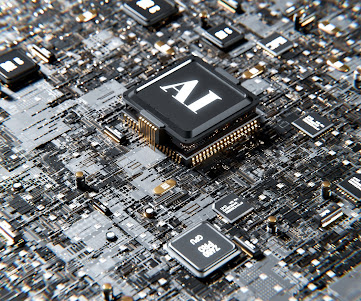AI
or Bye-Bye: Mastering 5 Essential Programming Languages for the Age of
Artificial Intelligence
Explore the key programming languages essential for
thriving in the era of artificial intelligence. From Python's versatility to
SQL's database mastery, learn how mastering these languages can make you an
architect of the AI revolution.
Introduction:
The era of artificial intelligence (AI) is upon us,
and it's not just about robots and self-driving cars—it's about transforming
industries through coding languages that unlock the potential of AI. As a
techie navigating this landscape, mastering specific programming languages is
crucial. In this article, we'll delve into the top five languages that every
tech enthusiast should learn to thrive in the age of AI.
1. Python: The
Powerhouse of AI and Machine Learning (ML)
At the forefront of AI and ML, Python stands as a
versatile language with a simple syntax, vast libraries like TensorFlow and
PyTorch, and an active community. Whether you're creating chatbots, analyzing
data, or developing deep learning algorithms, Python is your go-to language.
Dive deeper into Python's capabilities with our guide
on "Mastering Python for AI and ML."
2.
R: Unleashing the Power of Data in AI
In the realm of data analysis and visualization, R
reigns supreme. With robust statistical packages and built-in graphics, R
allows you to wrangle extensive datasets, uncover hidden patterns, and
effectively communicate insights. Its expertise in statistical computing makes
it indispensable for any AI endeavour.
Explore how R intersects with AI in our article
"The Synergy of R and Artificial Intelligence."
3.
Java: Bridging the Gap between AI and Real-World Applications
While not directly associated with AI, Java's robust
architecture and massive developer base make it indispensable for building
AI-powered applications. From web servers to enterprise solutions, mastering
Java ensures you can seamlessly integrate cutting-edge AI into real-world
applications.
Discover the role of Java in AI application
development in "Java: The Silent Force Behind AI Integration."
4.
JavaScript: Elevating Web Interactivity for AI
JavaScript, once synonymous with interactive websites,
has evolved. Frameworks like Node.js enable JavaScript to run server-side,
facilitating real-time data processing for AI applications. Learning JavaScript
equips you to build responsive user interfaces that interact seamlessly with AI
models.
Uncover the
synergy between JavaScript and AI in our guide "Node.js: Transforming
JavaScript for AI Applications."
5.
SQL: Mastering Data Access for AI Success
Unlocking the potential of AI often involves managing
large databases, and SQL, the structured query language, is the key.
Efficiently retrieve, modify, and manage data that fuels AI algorithms with
SQL, whether it's customer data, financial records, or sensor readings.
Explore the critical role of SQL in AI data management
in "Demystifying SQL for AI Enthusiasts."
Conclusion:
Shaping the Future through Code
Learning these programming languages isn't just about
staying relevant; it's about shaping the future. By mastering Python, R, Java,
JavaScript, and SQL, you position yourself not just as a techie but as an
architect of the AI revolution. Your coding skills can lead to innovative
solutions, from improving healthcare to optimizing business processes and
addressing global challenges like climate change.
SEO
Tip:
Share this valuable resource on social media platforms
with hashtags like #AIProgramming #FutureOfWork #TechRevolution, and encourage
discussions on the role of programming languages in shaping the AI landscape.
Your journey into coding is not just about adapting; it's about becoming a
driving force in building a brighter future through AI.
